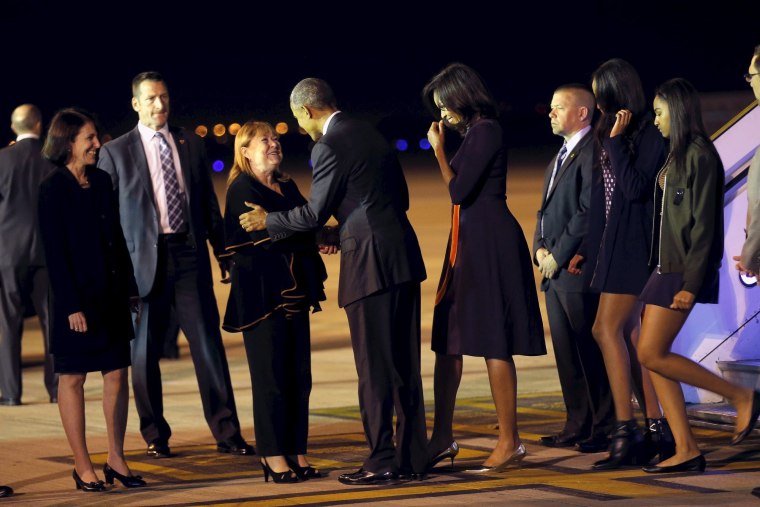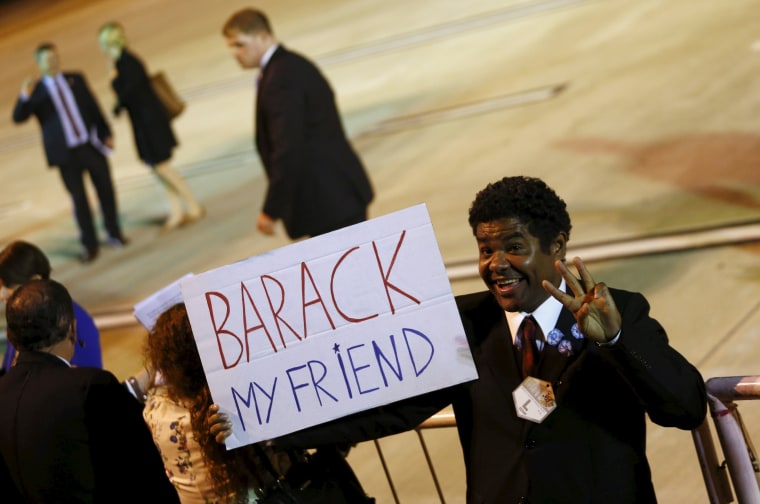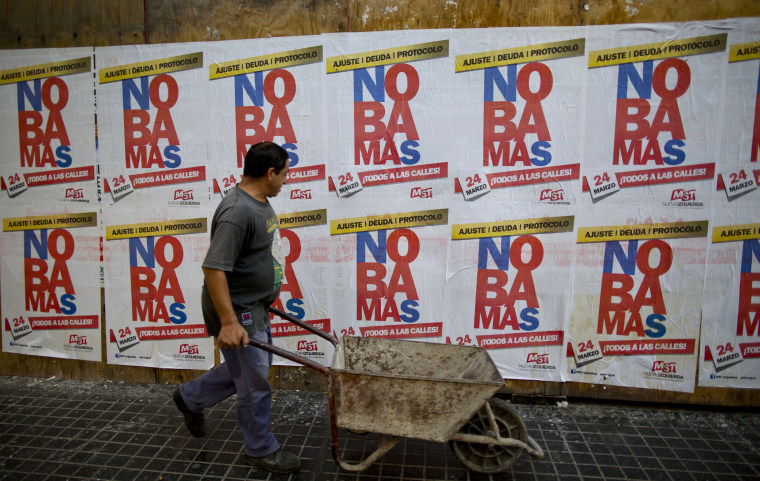BUENOS AIRES, Argentina -- After years of anti-America rhetoric posturing by Argentine leaders, President Mauricio Macri welcomed the United States delegation to the country.
Obama has made no secret of his preference for Argentine President Mauricio Macri over his left-leaning predecessor, Cristina Fernandez, whose meandering missives were a source of frequent frustration and eye-rolling in the White House. Obama was all too glad to see her replaced in December by Macri, who has affably accepted U.S. help with his mission to modernize Argentina's struggling economy.
"President Macri recognizes that we're in a new era, and we have to look forward," Obama said ahead of his trip.
Obama arrived in Buenos Aires for his two-day visit in the middle of the night. After a few hours' sleep, he was heading to Casa Rosada, the Argentine president's pink-hued offices, for a welcome ceremony and meeting. The two planned to hold a joint news conference before Obama lays a wreath at the Buenos Aires Metropolitan Cathedral.
Obama planned to hear from young Argentinians later at a town hall meeting, in what's become a hallmark of his trips abroad. Joined by first lady Michelle Obama, the president was to be feted by Macri at a state dinner in the evening, marking the first such visit by a U.S. president in nearly two decades.

RELATED: Obama Lands in Argentina for State Visit With Macri
Despite best efforts to keep the focus on the future, Obama's visit has been clouded by a renewed look at painful chapters in Argentina's past, returned to the forefront by the 40th anniversary this week of Argentina's 1976 coup. Questions about America's role in the military dictatorship that followed are a reminder of what many see as a shameful U.S. history of backing repressive Latin American regimes.

It was unclear whether Obama would use his visit to apologize or acknowledge decades-old U.S. mistakes. But as controversy about the timing of his visit grew last week, Obama's administration announced plans to declassify secret intelligence and military documents from the period, potentially shedding more light on a story left partially untold until now.
"He will be more than willing to speak to what took place 40 years ago, to the suffering that took place after the coup," said Ben Rhodes, Obama's deputy national security adviser.
RELATED: New President Macri Promises Major Changes And Honesty
In another gesture directed toward the victims of Argentina's "Dirty War," Obama planned to visit Remembrance Park in Buenos Aires on Thursday. Argentina's government estimates some 13,000 people were killed or disappeared under force during the crackdown on leftist dissidents, though activists say the number is as high as 30,000.
Obama's visit to Argentina, like his visit this week to Cuba, aims to bolster his efforts to keep the U.S. focused on economically important regions like Latin America and Asia, even while dealing with pressing security concerns in the Middle East and elsewhere. Overshadowing his trip were terror attacks Tuesday in Brussels that killed scores and triggered fresh panic in Europe about the spread of violent extremism.

Those distractions notwithstanding, Obama is hoping his final year as president will be one of critical progress for the U.S. and Latin America.
Even as Obama continues struggling with refugees fleeing insecurity and instability in Central America, his administration is working toward a historic truce between Colombia and the Revolutionary Armed Forces of Colombia, or FARC. The U.S. was heartened by the opposition's success in Venezuela's recent legislative elections.
No nation has become a more potent symbol of Obama's efforts to turn a page in Latin American than Cuba. The president flew to Argentina from Havana, where he made history as the first U.S. chief executive to visit in nearly 90 years, in a significant boost for his efforts to normalize ties with the longtime U.S. foe.
Associated Press writer Peter Prengaman contributed to this report.